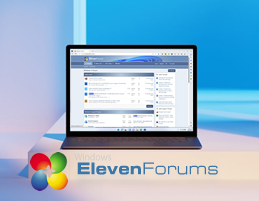- Local time
- 6:04 AM
- Posts
- 15
- OS
- Windows 11 Home 64bit
Hi guys,
I've an Asus Zenbook 14 oled laptop (UM3402YA model) from about 1 year and half, with Windows 11 Home (23H2 build 22631.3880), and all Windows/Microsoft updates and also MyAsus updates installed.
Since Windows Momentum update at march 2023, the emdedded SSD (INTEL SSDPEKNU010TZ 1TB), that had 3500 MB/s read and 2800 MB/s write speed at the beginning, now has only 2500 MB/s read and 1800 MB/s write speed.
Microsoft claims that already fixed with some Windows updates the SDD slow issue, but in my case the problem is still present.
I've tried to reduce the used space (from 120 GB to about 90 GB of 1 TB total), and tried many workarounds found on the web (checking if the AHCI mode and TRIM command are on, fragmentation off, power mode on maximum performance etc.), but I got the same performance.
Are needed some other configurations, after Windows updates that should fix the issue, to make them work?
Thanks a lot
Have a nice day
I've an Asus Zenbook 14 oled laptop (UM3402YA model) from about 1 year and half, with Windows 11 Home (23H2 build 22631.3880), and all Windows/Microsoft updates and also MyAsus updates installed.
Since Windows Momentum update at march 2023, the emdedded SSD (INTEL SSDPEKNU010TZ 1TB), that had 3500 MB/s read and 2800 MB/s write speed at the beginning, now has only 2500 MB/s read and 1800 MB/s write speed.
Microsoft claims that already fixed with some Windows updates the SDD slow issue, but in my case the problem is still present.
I've tried to reduce the used space (from 120 GB to about 90 GB of 1 TB total), and tried many workarounds found on the web (checking if the AHCI mode and TRIM command are on, fragmentation off, power mode on maximum performance etc.), but I got the same performance.
Are needed some other configurations, after Windows updates that should fix the issue, to make them work?
Thanks a lot
Have a nice day
- Windows Build/Version
- Windows 11 Home (23H2 build 22631.3880)
My Computer
System One
-
- OS
- Windows 11 Home 64bit
- Computer type
- Laptop
- Manufacturer/Model
- Asus Zenbook 14 OLED (UM3402YA
- CPU
- AMD Ryzen™ 7 5825U
- Motherboard
- ASUSTeK
- Memory
- 16GB LPDDR4X
- Graphics Card(s)
- AMD Radeon™
- Sound Card
- Realtek HD Audio
- Monitor(s) Displays
- 14" 2.8K (2880 x 1800) OLED 90Hz
- Screen Resolution
- 2.8K (2880 x 1800)
- Hard Drives
- 1TB M.2 NVMe™ PCIe® 3.0 SSD (INTEL SSDPEKNU010TZ)
- Internet Speed
- dw: 30 MB/s - up 3 MB/s - ping: 15 ms
- Browser
- Google Chrome
- Antivirus
- Avats Free
- Other Info
- my personal laptop











